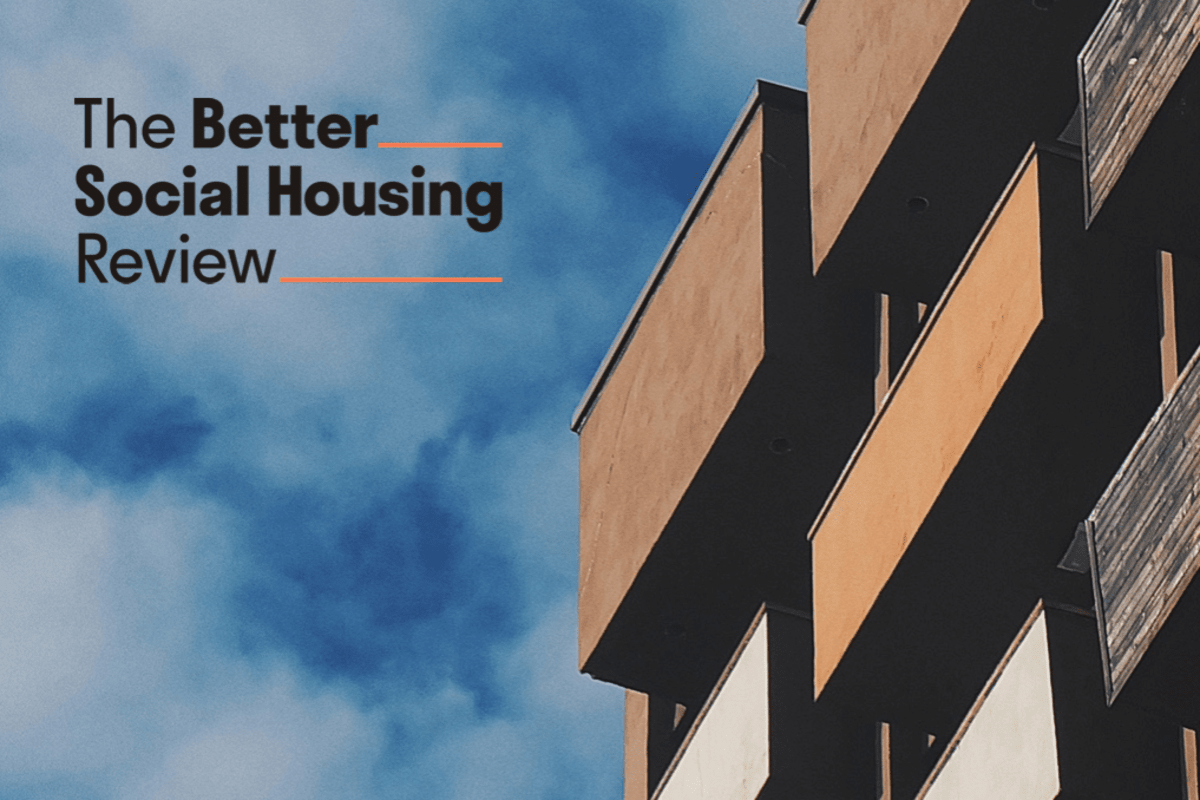You are viewing 1 of your 1 free articles

Kate Henderson is chief executive of the National Housing Federation
Knowing our homes and doing it right
Kate Henderson shares details of the National Housing Federation’s new programme to standardise data collection on stock conditions
Over the past few years, we’ve seen increasing media and political scrutiny over the quality of social housing. While it remains true that social homes are on average better quality than private rented and owner-occupied homes, examples have come to light where the condition of homes has fallen far short of what residents should expect.
In summer last year, the National Housing Federation and Chartered Institute of Housing commissioned the Better Social Housing Review (BSHR) – an independent review of the quality of social housing. Just a month before the Review reported on its findings, the coroner’s report was published on the tragic death of Awaab Ishak, fundamentally reinforcing why this work was so important.
One of the key recommendations from the BSHR was for the sector to carry out an audit of all social homes.
As noted by the panel, there is no “comprehensive, consistently measured picture of the state of social housing”. Establishing this would not only mean “landlords can make better decisions”, but would also mean the sector could use the data to “inform policy and practice and create a powerful case for targeted support… from government”.
We agree that having a fuller understanding of the condition of social homes is crucial to improving quality. In response to the recommendation, and as part of the BSHR action plan, we launched Knowing our Homes. This is a programme of work that aims to establish a shared, more standardised approach across the social housing sector for gathering and using information about the condition of homes and about residents’ needs.
“Having a fuller understanding of the condition of social homes is crucial to improving quality”
The data will enable landlords to better understand how services are experienced by all residents, including those from Black, Asian and ethnic minority backgrounds and other protected characteristics, and take action to address inequities.
We are working on this with our members (housing associations in England) and the local government sector – including the Local Government Association, the National Federation of ALMOs and the Association of Retained Council Housing – which is of the utmost importance in ensuring we have an approved, consistent approach right across the social rented sector.
Shortly after the publication of the BSHR action plan, the Regulator of Social Housing published its new draft consumer standards for consultation, setting out stronger expectations for the information social landlords need to collect about their homes and their residents.
We were pleased to see that these echoed the panel’s recommendations and our own work on this, requiring landlords to keep up-to-date records on the condition of individual properties and the needs of individual residents. Once these changes come into force, they will require social landlords to conduct regular checks on the condition of each of their homes.
This new context helped shape and focus the Knowing our Homes programme. We are working closely with the regulator, alongside NHF members and local government, to ensure our work supports social landlords as they prepare to meet these new regulatory requirements.
Next year, the Knowing our Homes programme will publish a series of guides setting out the measures social housing landlords can use to collect data and share best practice examples to support the sector to implement this new approach.
“Without funding from the government, this increased investment could result in trade-offs against other cost pressures”
Of course, social landlords will not be waiting for changes to regulation or the outcomes of Knowing our Homes to take action; landlords are already collecting data to build a picture of the condition of their homes and using this to make improvements and to work alongside their customers. Housing associations are also ramping up investment in existing homes, spending a record £6.5bn on repairs and maintenance in 2021-22 – a 20% increase on the previous year.
But without funding from the government, this increased investment could result in trade-offs against other cost pressures. The BSHR panel recognised the challenges the sector faces. It noted that “successive governments have not invested enough in providing funding for critical areas such as regeneration” and that the government “must recognise that it remains fully accountable for the provision of decent housing nationally”.
Bringing this work to fruition will take time, but our core aim is to do it right, providing assurance to all stakeholders from housing associations and councils to residents, the Regulator and the government. Having local government at the table means this important work will cut across the entire social housing sector.
We’re confident that Knowing our Homes will present the best solution to understanding the condition of social housing and that this work, alongside the renewed investment needed from the government, will ensure that every resident has the quality home they deserve.
Kate Henderson, chief executive, National Housing Federation
Sign up for our daily newsletter
Already have an account? Click here to manage your newsletters












